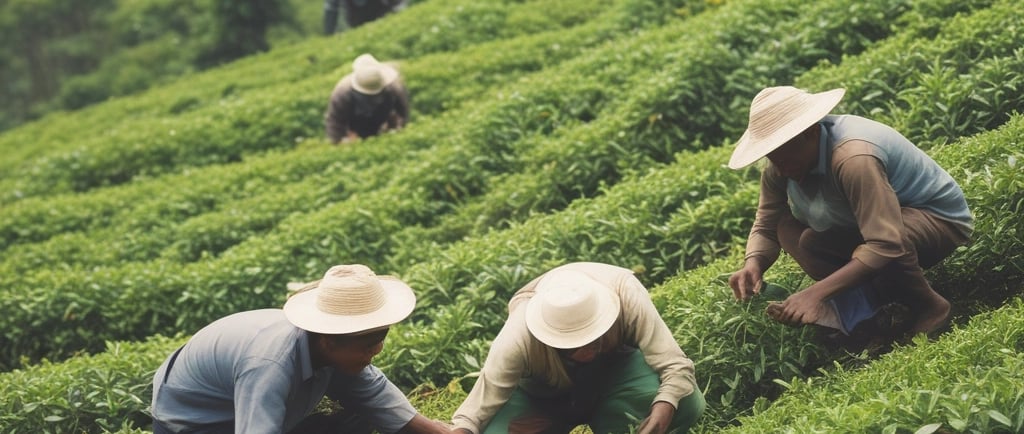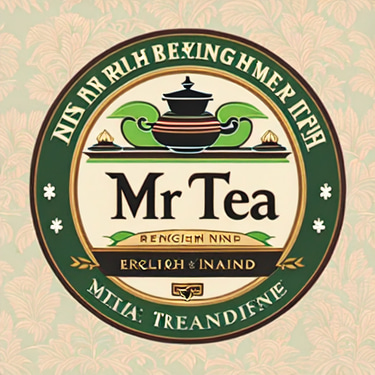Navigating Customs Clearance for Tea Harvesting Equipment: A Comprehensive Guide
Customs clearance for tea harvesting equipment involves several key steps: ensure proper documentation, including invoices, bills of lading, and product certifications. Work with a customs broker to navigate regulations, duties, and taxes. Be prepared for inspection and any additional fees. Familiarize yourself with the import policies of the destination country to avoid delays. Proper planning and compliance will ensure a smooth and timely import process.
4/10/20255 min read


Understanding Customs Clearance
Customs clearance is a critical process that enables goods to cross international borders. It involves the completion of various regulatory requirements to ensure that imported items, such as tea harvesting equipment, comply with the laws and regulations of the destination country. For tea growers looking to enhance productivity through modern machinery, understanding customs clearance is essential for a smooth import experience.
The importance of customs clearance cannot be overstated. It serves multiple purposes, including preventing illegal imports, collecting appropriate duties, and ensuring that products meet safety and quality standards. For businesses engaged in tea harvesting, navigating this process effectively can lead to timely delivery, reduced costs, and enhanced operational efficiency.
The customs clearance process typically involves several key steps. First, the importer must submit necessary documentation, which often includes purchase invoices, bills of lading, and certificates of origin, among others. These documents provide customs authorities with information regarding the applicable tariffs and the legitimacy of the products being imported.
Customs duties are another integral part of the process. These taxes are imposed on certain goods, and the rates can vary significantly depending on the type of tea harvesting equipment being imported. Understanding these duties can help businesses budget accordingly and avoid unexpected expenses.
Another critical aspect is the inspection of goods. Customs officials may randomly or routinely inspect shipments to verify compliance with regulations. This can include checking for accurate product descriptions and ensuring that the equipment meets safety standards. Such inspections help prevent the entry of substandard or unsafe machinery.
Engaging the services of a customs broker can facilitate this complex process, as they possess in-depth knowledge of regulations and can streamline paperwork requirements. They act on behalf of the importer, ensuring that all necessary protocols are adhered to, thereby minimizing the risk of delays. In conclusion, comprehending customs clearance is vital for tea businesses aiming to import harvesting equipment efficiently and legally.
Preparing Documentation for Tea Harvesting Equipment
When importing tea harvesting equipment, proper documentation is crucial for ensuring a smooth customs clearance process. The required preparation includes obtaining various key documents, each serving a specific purpose in complying with regulatory requirements.
Firstly, an import permit is essential. This document allows the importer to bring the equipment into the country legally. Each country has specific regulations regarding imports, and acquiring the appropriate import permit is vital. It is recommended to check with local authorities to ascertain any additional requirements regarding the type of tea harvesting equipment being imported.
Another critical document is the commercial invoice. This serves as a request for payment and includes various important details such as the description of the equipment, unit prices, total cost, and the terms of sale. Properly detailing the information on the commercial invoice can prevent misunderstandings and delays during the customs examination.
A packing list is also necessary; it outlines the contents of each shipment. It should detail the individual items included in the tea harvesting equipment shipment, along with their dimensions and weights. Customs officers rely on this list to compare it against the commercial invoice, ensuring that all items are accounted for and match the expected values.
Certificates of origin and compliance may also be required, depending on the destination country. A certificate of origin confirms where the equipment was manufactured, which can help determine the applicable tariffs. Meanwhile, compliance certificates verify that the equipment meets the importing country’s safety and quality standards. Ensuring that these documents are accurate and readily available can streamline the customs clearance process.
In conclusion, careful preparation of required documentation for tea harvesting equipment can greatly facilitate the customs clearance process, minimizing potential delays and ensuring compliance with local regulations.
Calculating and Paying Customs Duties
When importing tea harvesting equipment, understanding customs duties is essential to comply with regulations and mitigate unexpected costs. Customs duties are tariffs imposed on goods entering a country, and they can vary based on the type of equipment, its value, and the country of origin. To accurately calculate these duties, importers should first determine the Harmonized System (HS) code applicable to their equipment. This code categorizes goods and helps ascertain the applicable duty rate, which can differ among various countries.
In general, customs duty rates may fall into two categories: ad valorem and specific duties. Ad valorem duties are based on a percentage of the equipment's value, while specific duties are fixed fees applied per unit of measurement, such as weight or quantity. Importers should also be mindful of any preferential trade agreements that may reduce or eliminate duties on equipment sourced from certain countries. Knowledge of available exemptions can substantially lower the overall cost associated with customs clearance.
Once the duties have been calculated, payment can typically be made through an online portal provided by the customs authority or via a bank transfer. It is crucial for importers to keep records of all payments and documentation as the customs authorities might request them for verification or in case of future audits. Failure to adhere to customs duty regulations can result in penalties, fines, or even the confiscation of the equipment. Therefore, it is advisable for importers to allocate sufficient time and resources to comprehensively understand and fulfill these obligations to ensure a smooth import process.
Working with Customs Brokers for Efficient Clearance
Navigating the intricacies of customs clearance can be particularly challenging when importing tea harvesting equipment. One effective strategy for facilitating this process is to enlist the help of a customs broker. A customs broker is a licensed professional who specializes in clearing goods through customs, ensuring compliance with all applicable laws and regulations. Their expertise is invaluable in mitigating potential delays and avoiding costly errors during the clearance process.
When selecting a customs broker, it is essential to consider factors such as experience, specialization, and reputation. A broker with proven experience in the agricultural sector, particularly in tea harvesting equipment, will possess the specific knowledge necessary to handle the nuances of importing these items. Additionally, reviewing testimonials and case studies of successful clearances can provide insight into the broker's capabilities and reliability. It is also beneficial to evaluate their communication skills and responsiveness, as timely updates during the process can significantly reduce stress and uncertainty.
Customs brokers offer a variety of services that can streamline the clearance process. These services typically include preparing and submitting required documentation, paying duties and taxes on behalf of the importer, and facilitating communication between the importer and government authorities. They can also assist in interpreting complex regulations, which is crucial for ensuring that all equipment meets safety and compliance standards. For instance, a custom broker may advise on specific certifications required for the importation of certain types of tea harvesting machines, effectively eliminating compliance issues before they arise.
Utilizing a customs broker can markedly simplify the clearance process for tea harvesting equipment. With their expertise, importers can focus on their core business operations while ensuring that their equipment arrives safely and promptly. Striving for an efficient customs clearance experience ultimately results in increased productivity and reduced delays, contributing positively to your overall import strategy.
